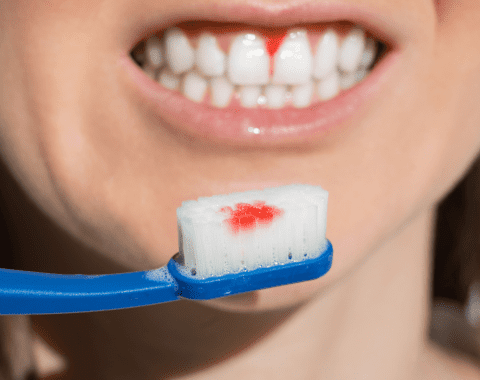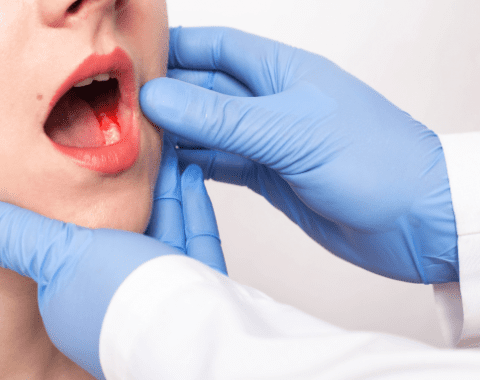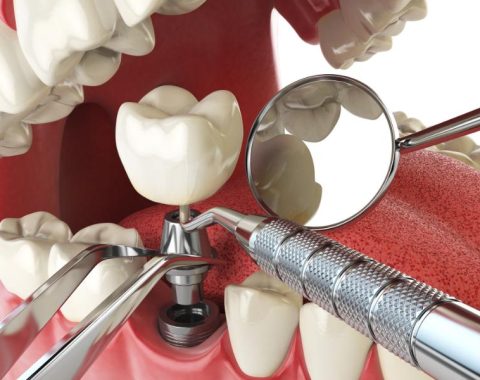When it comes to halitosis treatments, there are a lot of options out there. But which one really works? We’ve put together a list of the best halitosis treatments to help you make the right choice.
What is Halitosis?

Dental health is important for overall health, but many people don’t realize that poor dental health can lead to bad breath, or Halitosis. Halitosis is a condition that can be caused by a number of things, including poor dental hygiene, certain foods, and this is largely due to the presence of sulphur producing bacteria on the tongue and in the throat. This bacteria converts protein into smelly compounds at a very quick rate
While bad breath is often nothing more than a nuisance, it can be embarrassing and even make it difficult to socialize.
Causes of Halitosis and How to Treat Them

Bad breath, also known as halitosis, can be a major source of embarrassment. It’s also a common problem, affecting an estimated 25 to 50 percent of the population. The cause of bad breath may be as simple as eating certain foods or not practicing good oral hygiene. However, in some cases, bad breath may be a sign of a more serious condition.
The most common cause of halitosis is poor oral hygiene. Plaque, a sticky film of food debris, bacteria, and saliva, constantly forms on your teeth. If you don’t remove plaque with brushing and flossing, it hardens into tartar, which can cause bad breath.
Other Causes of Halitosis
In addition to poor oral hygiene, there are other possible causes of halitosis, including:
Certain Foods – Eating certain foods, such as garlic, onions, and spicy foods, can cause bad breath.
Dry Mouth – A dry mouth can cause bad breath. Saliva helps to cleanse your mouth and remove food and bacteria. If you don’t have enough saliva, these things can build up, leading to bad breath.
Tobacco Products – Smoking and using other tobacco products, such as chewing tobacco, can cause bad breath.
Gum disease – Gum disease, also called periodontal disease, is an infection of the gums and bones that support your teeth. Gum disease can cause bad breath.
Certain Medical Conditions – Some medical conditions, such as diabetes, kidney disease, and lung disease, can cause bad breath.
Xerostomia – Xerostomia is a condition that causes a dry mouth. Xerostomia can be caused by certain medications, such as antihistamines, decongestants, and painkillers.
Some underlying causes of halitosis are thereby mentioned below:
Some oral health issues include tooth decay, severe gum disease, abscesses, diseases of the salivary glands, mouth infections, and more.
Extraoral conditions such the common cold, the flu, or sinusitis, as well as kidney, liver, lung, and other infections, diabetes, and other conditions
Other factors include hunger, a high-protein diet, and medications like antihistamines and diuretics.
Treating Halitosis
The treatment for halitosis will depend on the underlying cause. Good oral hygiene is the most important thing you can do to prevent and treat bad breath. Be sure to brush your teeth twice a day and floss daily. Other treatments for halitosis can include:
Mouth rinses and toothpastes – There are a number of over-the-counter mouth rinses and toothpastes that are designed to help treat and prevent bad breath.
Tongue scrapers – A tongue scraper is a tool that can help remove bacteria and food debris from your tongue.
Saliva substitutes – Saliva substitutes can help to moisten your mouth and keep it clean.
Prescription mouth rinses – In some cases, your dentist or doctor may prescribe a mouth rinse to help treat bad breath.
Dental procedures – In some cases, dental procedures, such as teeth cleaning or scaling and root planing, may be necessary to treat gum disease and bad breath.
Are you in need of a professional consultation of treatment for halitosis? Contact Dr. Zamani today
Symptoms of Halitosis

The most common symptom of halitosis is bad breath. However, other symptoms can include a dry mouth, a burning sensation in the throat, and a bitter taste in the mouth.
Foods to Avoid If You Have Halitosis.

When you have halitosis, it can be difficult to enjoy the foods you love. That’s because certain foods can make your bad breath worse. If you’re hoping to freshen your breath, you’ll want to avoid the following foods.
Garlic: We all know that garlic can make your breath smell. But did you know that it can also cause halitosis? That’s because garlic contains sulfur compounds that are released into your bloodstream when you eat it. These sulfur compounds are then expelled through your lungs, resulting in bad breath.
Onions: Like garlic, onions also contain sulfur compounds. So if you’re trying to avoid halitosis, you’ll want to steer clear of onions, too.
Spicy foods: Spicy foods can cause yourhalitosis to worsen. That’s because they can trigger a condition called heartburn. When you have heartburn, stomach acids travel up your throat and into your mouth. The acid then interacts with the bacteria in your mouth, resulting in bad breath.
Alcohol: Alcohol can also cause halitosis. That’s because it dries out your mouth. A dry mouth is a breeding ground for bacteria. And when bacteria builds up, it can lead to bad breath.
Coffee: Coffee can also contribute to halitosis. That’s because it’s a diuretic, which means it causes you to urinate more. When you urinate more, you expel more water from your body. And when there’s less water in your body, your saliva becomes more concentrated. This can lead to bad breath.
Smoking: Smoking is one of the worst things you can do for your halitosis. That’s because smoking dries out your mouth and irritates your gums. It also stains your teeth and tongue, which can lead to bad breath.
If you have halitosis, you’ll want to avoid the above foods. By doing so, you can help freshen your breath and enjoy the foods you love.
Why Mouthwash Isn’t Always the Answer to Bad Breath

When you have bad breath, it can be really embarrassing. You might be afraid to talk to people or even kiss someone. The first thing you might think to do is to brush your teeth more, or to use mouthwash. But is that really the best solution?Mouthwash is a great option for freshening your breath, but it’s not always the best answer to bad breath. Here’s why:
Bad breath is caused by a variety of things, including food, drinks, tobacco, and certain medical conditions. If you have bad breath, the best thing you can do is to see your dentist or doctor to find out the cause. They can help you find the best solution for your particular situation.
Home Remedies for Halitosis

Bad breath is a common problem that can be caused by a number of things, including food, tobacco, poor dental hygiene, and certain medical conditions. While there are many commercial mouthwashes and mints available to help mask bad breath, there are also some simple home remedies that can help freshen your breath and eliminate the causes of bad breath. Read on for some simple home remedies for bad breath.
1. Brush And Floss Your Teeth Regularly – Poor dental hygiene is one of the most common causes of bad breath. Be sure to brush your teeth at least twice a day and floss daily to remove plaque and food particles from your teeth and gums. Additionally, you should brush your tongue with a tongue scraper or your toothbrush to remove bacteria and help freshen your breath.
2. Drink Plenty Of Water – Staying hydrated is important for overall health, and it can also help freshen your breath. When your mouth is dry, bacteria are more likely to grow and cause bad breath. Drinking plenty of water throughout the day can help keep your mouth moist and help prevent bad breath.
3. Chew Sugarless Gum Or Suck On Sugarless Candy – Chewing gum or sucking on candy stimulates saliva production, which can help rinse away bacteria and food particles that cause bad breath. Be sure to choose sugarless varieties to avoid promoting tooth decay.
4. Avoid Tobacco Products – Tobacco products, including cigarettes, cigars, and chewing tobacco, are a major cause of bad breath. If you use tobacco products, quitting is the best way to freshen your breath and improve your overall health.
5. Use a Mouthwash – Mouthwashes can help rinse away bacteria and food particles that cause bad breath. Be sure to choose a mouthwash that contains fluoride to help protect your teeth from cavities.
6. Eat Yogurt – Yogurt contains live and active cultures that can help fight bad breath. Additionally, the calcium in yogurt can help strengthen your teeth and gums.
7. Rinse Your Mouth With Baking Soda – Baking soda is a natural deodorizer that can help neutralize bad breath. Mix one teaspoon of baking soda with a glass of water and swish it around your mouth for 30 seconds. Spit it out and rinse your mouth with water.
8. Eat Fresh Fruits and Vegetables – A diet rich in fresh fruits and vegetables can help improve your overall health and freshen your breath. Eating raw fruits and vegetables increases saliva production, which helps rinse away bacteria and food particles that cause bad breath.
9. Quit Smoking – Smoking is a major cause of bad breath – Quitting smoking is the best way to improve your overall health and freshen your breath.
10. See Your Dentist Regularly – Good dental hygiene is important for fresh breath, but regular dental checkups and cleanings are also important. Be sure to see your dentist every six months for a professional cleaning and checkup.
When to See a Doctor for Halitosis

If you have bad breath that doesn’t go away after brushing your teeth and tongue, or if you have other symptoms like a sore throat or dry mouth, you should see a doctor.
Your dentist can help determine the cause of your halitosis and recommend treatment. If your bad breath is due to gum disease, your dentist will likely recommend a professional cleaning and special mouthwash. If your bad breath is due to a sinus infection, your doctor will prescribe antibiotics.




